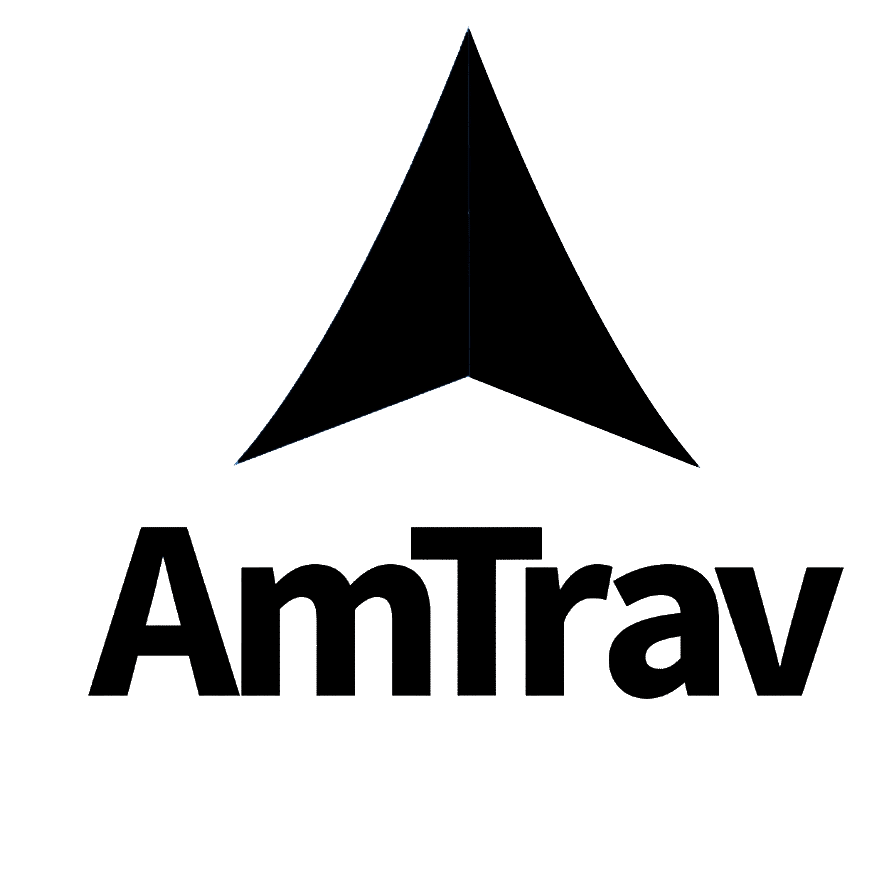Travel management software
Complete travel management
Achieve travel policy compliance through convenience — and unlock up to 20% savings on your corporate travel program.
Powered by purpose-built Emburse AI, experience seamless end-to-end travel management with automated re-shopping, supplier contract audits, and real-time visibility into spend — all from one unified mobile app.

COMPLETE TRAVEL MANAGEMENT
Full cycle travel management, pre-trip to post trip
Tools to tailor your travel program to your organization’s needs — from policy setup to post-trip reconciliation. Powered by purpose-built Emburse AI, gain proactive control, visibility, and automation at every step.

Pre-approvals
Use pre-trip authorization to ensure proposed travel aligns with company budgets and policies. Automate approval routing to control spend before it occurs and keep departments accountable in real time.

Strong expense controls
Map configurable approval rules directly to your corporate travel policies. Emburse AI enforces limits and triggers auto-approvals where appropriate — reducing manual review and improving compliance.

Integrations
Connect seamlessly with the travel providers, booking tools, and expense platforms your business already uses. Unified integrations deliver a streamlined experience that simplifies trip management, booking, and expense reconciliation.

Insights
Gain full visibility into travel, expense, and card data in one view. Real-time analytics uncover policy leakage, highlight savings opportunities, and identify optimization trends across your corporate travel program.
Why Emburse travel management software?
Compliance made convenient
- Integrated corporate travel and expense management software with travel providers of your choice
- Automatically alert travelers with opportunities for savings with real-time air and hotel re-shopping
- Discover opportunities for travel policy improvement, contract negotiation, and savings with support for NDC fare analysis
- Explore the impact of policy changes with “what if” scenario analysis
- Keep travelers informed and prepared with company-specific content for destinations, policy reminders, duty of care, and more
- Deliver timely messages and information to support travelers throughout their trip
- Unified mobile experience for travel, expense, and payments, including integrated itinerary management and in-app policy reminders.
Emburse partners with leading travel management companies worldwide







About Emburse AI
Expense Intelligence in Real Time
Finance moves fast — your insights should, too.
Emburse AI gives finance teams real-time visibility and control from the moment spend begins. Purpose-built for accuracy and security, it automatically captures and categorizes every expense, enforces policy before submission, and adapts to global tax and currency rules with ease.
It’s intelligence designed for people — transforming spend management from reactive to strategic — to help their organizations prevent errors and fraud before it happens.
T&E Management Software for enterprises
Best in class travel experience
Book
Give employees an easy travel booking experience with built-in policy and compliance rules.
Reshop
Automated rate review and reshopping delivers savings opportunities to travelers with easy re-booking when better rates emerge.
Audit
Monitor booked rates against contracts and the market, including NDC content, to make sure suppliers are honoring agreements.
Benchmark
Analyze your rates against similar organizations to determine if and how often you’re getting the right or best price.
Go
All-in-one travel companion mobile app with contextual messaging to keep employees informed and safe.
Learn how Emburse Reshop automates corporate travel savings
Emburse Reshop (formerly TRIPBAM) constantly tracks and compares current prices with your booked reservations. When a better price becomes available, employees are notified and rebooking is made easy or automatic based on your preferences.
Support
Always backed by experts
We prioritize our customers and their success. At Emburse, we understand that using technology and having a dedicated team are both essential for maximizing your organization's value.

Training
Information to help you stay updated on new features and maximize the value of the solutions you have.

Support
Address any questions and support needs with our team of dedicated analysts ready to assist.

Managed Services
Expert consulting and proactive configuration services tailored to your needs.

Customer Success
Experienced strategic account advisors to help you achieve your goals.

Travel emissions
Track travel emissions easily
The Emburse Go app displays information on your trip's emissions. It also compares this data to other uses, such as the number of homes your emissions could power.
Spend data analytics
Analyze all spend in one place
Emburse solutions use advanced analytics capabilities to provide current and accurate information, unlike traditional travel and expense software. Access one version of the truth to make informed decisions, instead of scattered data across the organization.

“”With Emburse, we’ve been able to reduce spending by 20% and reimburse travelers 70% faster.
Albert Kupfer
OKI Europe

Emburse Travel FAQs
Frequently asked questions
Corporate travel management refers to managing and coordinating business travel activities for employees within an organization. It involves various tasks, such as travel planning, booking flights and accommodations, arranging transportation, managing travel policies, and ensuring compliance with company guidelines and budgets. Corporate travel management aims to streamline the travel process, control costs, ensure employee safety and satisfaction, and optimize travel-related efficiency and productivity. Corporate travel management software plays a crucial role in automating and simplifying these processes, making it easier for organizations to efficiently handle their travel needs.
Keeping track of business expenses can be made easier through various methods, including:
- Using expense management software: Implementing travel and expense management software can automate expense tracking, receipt scanning, expense categorization, and allocations. Maintaining a digital record: Keep digital copies of receipts, invoices, and expense-related documents using receipt scanner apps or document management systems.
- Using mileage trackers: Use mileage tracker apps to record and calculate mileage for business-related travel accurately.
- Implementing expense policies: Establish clear expense policies that outline what employee travel expenses are reimbursable, the submission process, and any spending limits.
- Regularly reconciling expenses: Review and reconcile expenses regularly to ensure accuracy and identify any discrepancies or potential areas for improvement.
- Organizing expense documentation: Maintain an organized system for storing and categorizing expense-related documents for easy retrieval and auditing.
Business expenses on a business trip typically include:
- Transportation: Costs associated with airfare, train tickets, rental cars, taxis, or rideshare services used for business purposes.
- Lodging: Expenses related to hotel stays during the business trip.
- Meals: Costs incurred for meals and refreshments consumed while on business travel.
- Entertainment: Expenses for client meetings, networking events, or other business-related activities.
- Communication: Charges for phone calls, internet usage, or other communication services necessary for conducting business while traveling.
- Incidentals: Miscellaneous expenses such as tips, parking fees, baggage fees, or visa fees that are directly related to the business trip.
- Other specific expenses: Expenses directly related to the purpose of the business trip, such as conference registration fees, equipment rentals, or business-related materials.
It is important to consult your company's expense policies and guidelines to determine the specific allowable expenses and any spending limits applicable to your business trip.
Billable travel expenses are costs incurred during a business trip that can be directly billed to a client or customer. These expenses are typically reimbursable by the client and may include travel fares, accommodation charges, or meals and entertainment expenses directly related to client meetings or projects.
Non-billable travel expenses are costs that cannot be directly charged to a client or customer. The company typically covers these expenses and may include internal team meetings, training sessions, or expenses incurred for non-client-related activities during the business trip.
It is important to consult your company's policies and guidelines to understand how billable and non-billable travel expenses are handled and what documentation is required for reimbursement or billing purposes.
The protocol for paying business trip expenses may vary depending on the company's policies and practices. Employees are required to pay for business trip expenses using personal funds or corporate credit cards. After the trip, employees submit expense reports and supporting documentation for reimbursement or direct payment. Reimbursement may be processed through payroll or a separate expense reimbursement management system based on the company's reimbursement policies and spending limits in place.
It is important to familiarize yourself with your company's specific protocols and follow the guidelines for paying and reimbursing business trip expenses.
Here are some ways to save your company money on business travel:
- Travel plan in advance: Book flights and accommodations well in advance to take advantage of lower fares and hotel rates.
- Encourage cost-conscious travel: Communicate to employees the importance of cost-consciousness when making a travel arrangement, such as choosing economical flight options or staying at reasonably priced accommodations.
- Use travel rewards programs: Enroll in loyalty programs offered by airlines, hotels, and car rental companies to accumulate points or miles that can be redeemed for future business trips.
- Implement travel policies: Establish clear policies and guidelines that outline allowable expenses, spending limits, and preferred vendors or travel booking platforms.
- Encourage virtual meetings: Whenever feasible, consider using video conferencing or virtual meeting tools as an alternative to in-person travel, reducing travel costs and environmental impact.
- Seek negotiated rates: Negotiate corporate rates with preferred hotels, airlines, or car rental companies to secure discounted prices for business travel.
- Monitor and analyze expenses: Regularly review and analyze travel expenses to identify cost-saving opportunities, analyze spending patterns, and make informed decisions regarding travel budget and policies.
By implementing these strategies, companies can effectively manage travel expenses and optimize cost savings without compromising the quality of business travel.
Travel management software offers several benefits for businesses, including:
- Streamlined booking process: Travel management software simplifies the booking process by providing a centralized platform for employees to search and book flights, hotels, and rental cars, saving time and effort.
- Cost control: Using travel management software, companies can enforce travel policies, set spending limits, and access negotiated rates, ensuring cost control and compliance with budgetary restrictions.
- Policy enforcement: Travel management software enables companies to establish and enforce travel policies, ensuring employees adhere to guidelines and make compliant bookings.
- Expense tracking and reporting: Travel management software often integrates with an expense management system, allowing for seamless tracking of travel-related expenses and generating detailed reports for reimbursement and financial analysis.
- Improved visibility and transparency: Travel management software provides real-time visibility into travel bookings and expenses, allowing companies to monitor and manage travel-related activities effectively.
- Duty of care: Travel management software can assist in ensuring the safety of employees by providing access to travel alerts, emergency contact information, and traveler tracking features.
- Analytics and insights: Travel management software offers reporting and analytics capabilities, allowing companies to gain insights into travel patterns, expenses, and trends, facilitating better decision-making and cost optimization.
The cost of an average business trip can vary widely depending on several factors, such as destination, duration, purpose, industry, and company policies. According to various studies and industry reports, an average domestic business trip in the United States can range from $1,000 to $2,500 per traveler, including airfare, hotel accommodations, meals, ground transportation, and incidentals. International business trips tend to be more expensive, with costs averaging around $3,000 to $5,000 per traveler.
Put our travel expertise to work
Experience compliance through convenience.
Discover how Emburse travel management solutions uses real-time, purpose-built AI to simplify booking, enforce policy, and deliver visibility from itinerary to reimbursement.